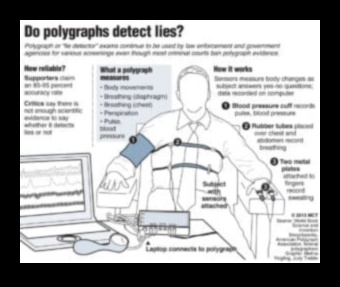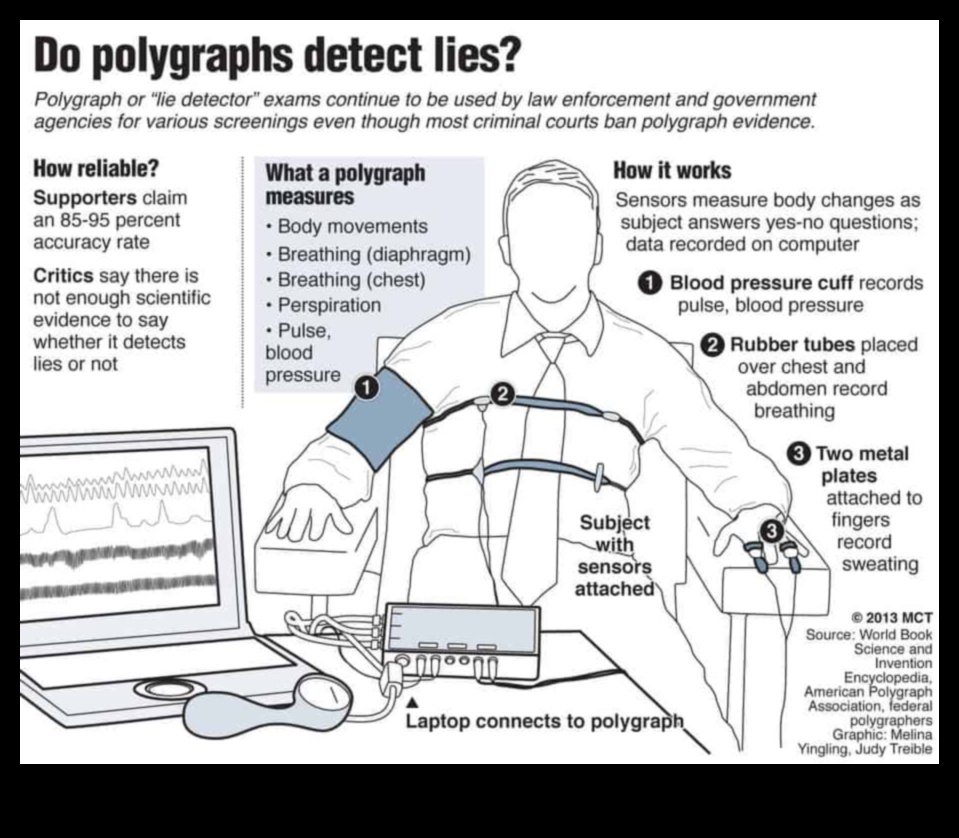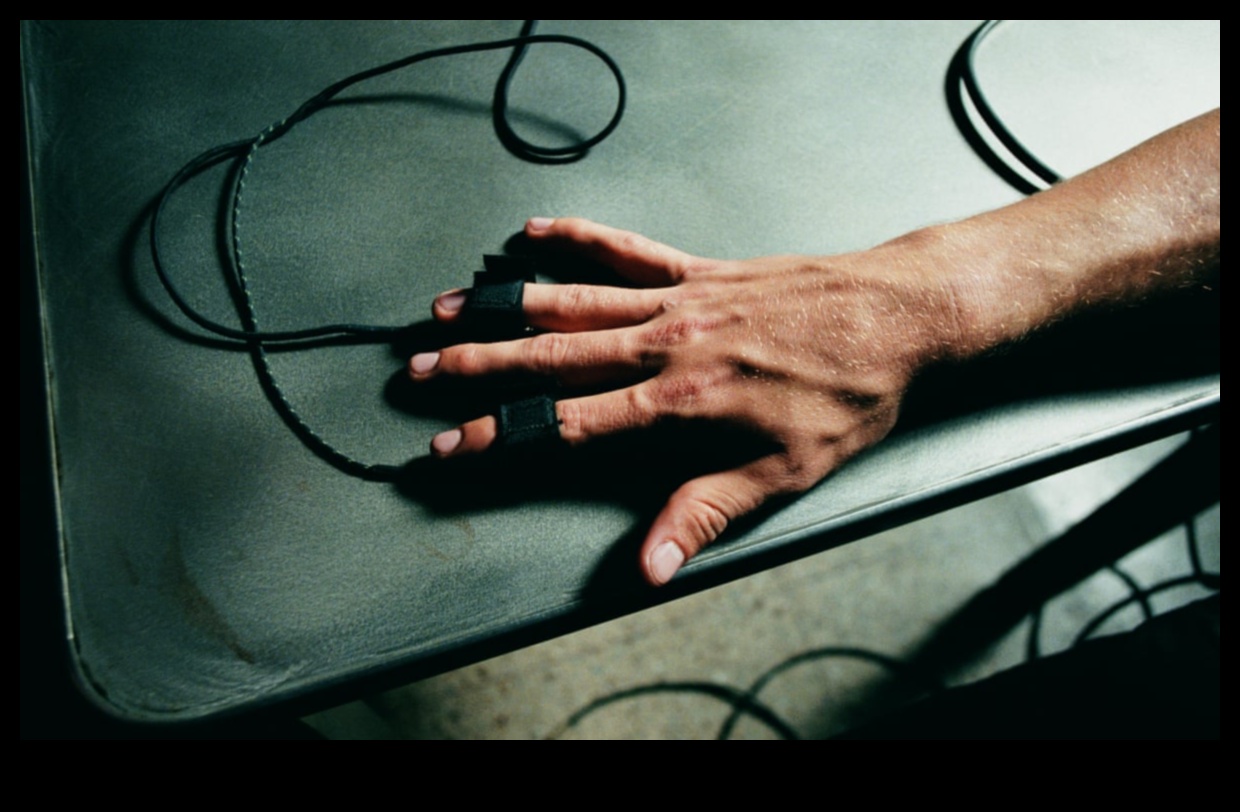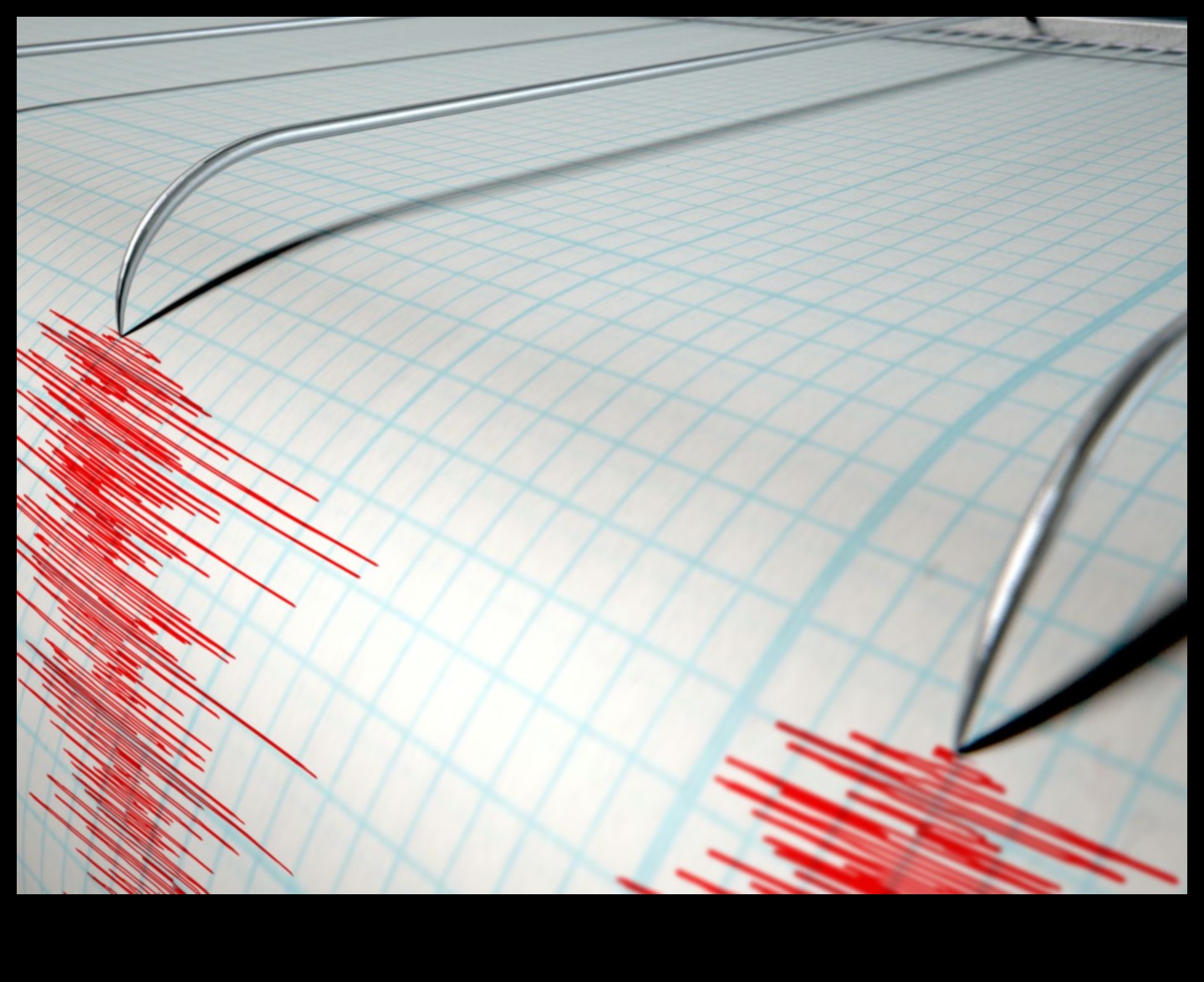
Lie Detector Tests in Court
Lie detector tests, also known as polygraph tests, are used to measure a person’s physiological responses to questions in order to determine whether or not they are telling the truth. While lie detector tests are often used in law enforcement and criminal investigations, they are not admissible in court in most jurisdictions.

History of Lie Detector Tests in Court
The first lie detector test was developed in 1921 by John Larson, a police officer in Berkeley, California. Larson’s test, which he called the “polygraph,” used a number of physiological measurements, including blood pressure, pulse rate, and respiration rate, to assess a person’s emotional state.
Larson’s test was quickly adopted by law enforcement agencies around the world, and by the 1930s, lie detector tests were being used in criminal investigations and courtrooms. However, the reliability of lie detector tests was soon called into question. In 1935, a study by the American Psychological Association found that lie detector tests were only accurate about 60% of the time.
The Reliability of Lie Detector Tests
Since the 1930s, there have been a number of studies conducted on the reliability of lie detector tests. The results of these studies have been mixed, but most experts agree that lie detector tests are not as accurate as their proponents claim.
One of the biggest problems with lie detector tests is that they are susceptible to false positives. A false positive occurs when a person is incorrectly identified as lying, even though they are telling the truth. False positives can happen for a number of reasons, including:
- Stress
- Anxiety
- Fear
- Confusion
- Medical conditions
Another problem with lie detector tests is that they are not able to distinguish between lies and other types of deception, such as exaggeration or omission. This means that a person who is telling the truth could still be flagged as a liar if they are nervous or anxious during the test.

The Admissibility of Lie Detector Tests in Court
In most jurisdictions, lie detector tests are not admissible in court. This is because the courts have determined that lie detector tests are not reliable enough to be used as evidence.
There are a few exceptions to this rule. In some jurisdictions, lie detector tests may be admissible if they are used as part of a pre-trial hearing to determine whether or not there is probable cause to believe that a crime has been committed. Lie detector tests may also be admissible in court if both parties agree to the test.

The Pros and Cons of Using Lie Detector Tests in Court
There are a number of pros and cons to using lie detector tests in court. Some of the pros of using lie detector tests include:
- They can help to identify liars.
- They can be used to protect innocent people from being falsely accused.
- They can help to convict criminals.
Some of the cons of using lie detector tests in court include:
- They are not reliable.
- They can be used to intimidate witnesses and defendants.
- They can violate the Fifth Amendment right against self-incrimination.
Case Studies of Lie Detector Tests in Court
There have been a number of cases in which lie detector tests have been used in court. Some of the most famous cases include:
- The 1985 murder trial of O.J. Simpson.
- The 1995 Oklahoma City bombing trial of Timothy McVeigh.
- The 2001 anthrax attacks trial of Bruce Ivins.
In each of these cases, the results of the lie detector tests were used by the prosecution to try to prove their case. However, in each case, the defense was able to
| Lie Detector Test | Court Admissibility |
|---|---|
| Polygraph | Not admissible in federal courts |
| Lie detection | Can be used as evidence, but not always reliable |
| Credibility | Lie detector tests can be used to assess credibility, but not prove guilt |
II. History of Lie Detector Tests in Court
The use of lie detector tests in court dates back to the early 1900s. In 1923, the first lie detector test was used in a court case in the United States. The test was used to determine if a suspect in a murder case was telling the truth about his alibi. The test results were inconclusive, and the suspect was acquitted.
In the years since, lie detector tests have been used in a variety of court cases. However, their admissibility in court has been hotly debated. Some people argue that lie detector tests are not reliable enough to be used as evidence, while others argue that they can be a valuable tool for determining guilt or innocence.
In 1988, the Supreme Court ruled in the case of United States v. Dionisio that lie detector tests are not admissible in federal court. The Court held that lie detector tests are not reliable enough to be used as evidence, and that their use would violate the Fifth Amendment right against self-incrimination.
Despite the Supreme Court’s ruling, lie detector tests are still admissible in some state courts. However, the admissibility of lie detector tests varies from state to state. In some states, lie detector tests are only admissible if both the prosecution and the defense agree to their use. In other states, lie detector tests are only admissible if the judge finds that they are reliable and relevant.
The Reliability of Lie Detector Tests
Lie detector tests are not 100% accurate. There are a number of factors that can affect the results of a lie detector test, including:
- The skill of the examiner
- The anxiety level of the subject
- The subject’s ability to control their bodily reactions
- The presence of other medical conditions
As a result, it is possible for a person to lie on a lie detector test and not be detected. In fact, studies have shown that lie detector tests can be inaccurate up to 30% of the time.
This is why lie detector tests are not admissible in court in most jurisdictions. The courts recognize that lie detector tests are not 100% accurate and that they can be easily manipulated.
IV. The Admissibility of Lie Detector Tests in Court
The admissibility of lie detector tests in court is a complex and controversial issue. There are a number of factors that courts consider when determining whether or not to admit a lie detector test as evidence, including:
- The reliability of the test
- The relevance of the test to the case
- The potential for the test to be prejudicial to the defendant
In general, courts are reluctant to admit lie detector tests as evidence because they are not considered to be reliable. Lie detector tests are based on the assumption that people who are lying will exhibit physiological changes that can be detected by a polygraph machine. However, there is a significant amount of research that shows that lie detector tests are not very accurate. In fact, one study found that lie detector tests are only accurate about 50% of the time.
In addition, courts are concerned about the potential for lie detector tests to be prejudicial to the defendant. A lie detector test can create the impression that the defendant is guilty, even if the test is not accurate. This can make it difficult for the defendant to get a fair trial.
As a result of these concerns, most courts do not allow lie detector tests to be admitted as evidence in criminal trials. However, there are a few exceptions to this rule. In some cases, courts may allow lie detector tests to be admitted as evidence if the test is conducted by a qualified expert and the results are reliable.
The admissibility of lie detector tests in civil cases is more relaxed than in criminal cases. In civil cases, courts are more likely to admit lie detector tests as evidence if they are relevant to the case and if the potential for prejudice is outweighed by the probative value of the test.
Overall, the admissibility of lie detector tests in court is a complex and controversial issue. There are a number of factors that courts consider when making a decision, and there is no easy answer.
The Pros and Cons of Using Lie Detector Tests in Court
There are a number of pros and cons to consider when using lie detector tests in court.
Pros:
- Lie detector tests can provide valuable evidence in cases where there is no other evidence available.
- Lie detector tests can help to identify liars and protect innocent people from being falsely accused.
- Lie detector tests can help to speed up the judicial process by providing quick and accurate results.
Cons:
- Lie detector tests are not 100% accurate.
- Lie detector tests can be influenced by a number of factors, such as stress, anxiety, and medication.
- Lie detector tests can be used to intimidate and coerce suspects into giving false confessions.
Ultimately, the decision of whether or not to use a lie detector test in court is a complex one that must be made on a case-by-case basis.
VI. Case Studies of Lie Detector Tests in Court
There have been a number of cases in which lie detector tests have been used in court. Some of the most notable cases include:
- In 1990, the Supreme Court ruled in the case of United States v. Dionisio that lie detector tests are not admissible in federal court. However, the Court left open the possibility that lie detector tests could be admissible in state court.
- In 1998, the New York Court of Appeals ruled in the case of People v. Gartland that lie detector tests are admissible in state court, but only if the test is conducted by a qualified examiner and the results are properly authenticated.
- In 2004, the California Supreme Court ruled in the case of People v. Alvarez that lie detector tests are not admissible in state court.
These cases show that the admissibility of lie detector tests in court is still a complex and controversial issue. There is no clear consensus on whether or not lie detector tests are reliable enough to be used as evidence in court.
VII. The Future of Lie Detector Tests in CourtThe future of lie detector tests in court is uncertain. There are a number of factors that could affect the admissibility of these tests, including the development of new technology, changes in the law, and public opinion.
One possible development is the development of new technology that could make lie detector tests more reliable. For example, researchers are currently working on developing a lie detector test that can measure brain activity. If this technology is successful, it could make lie detector tests more accurate and reliable, which could lead to an increase in their admissibility in court.
Another factor that could affect the admissibility of lie detector tests is changes in the law. In recent years, there have been a number of court cases that have challenged the admissibility of lie detector tests. These cases have resulted in different rulings, which has made it difficult to determine the legal status of these tests. If the law were to change, it could make lie detector tests more or less admissible in court.
Finally, public opinion could also affect the admissibility of lie detector tests. If the public becomes more skeptical of these tests, it could lead to a decrease in their admissibility in court. Conversely, if the public becomes more convinced of the accuracy of these tests, it could lead to an increase in their admissibility.
It is difficult to predict what the future holds for lie detector tests in court. However, it is clear that these tests are a controversial issue that is likely to continue to be debated for many years to come.
FAQ
What is a lie detector test?
A lie detector test, also known as a polygraph test, is a type of psychological test that measures physiological changes in a person’s body in order to determine whether or not they are telling the truth.
How does a lie detector test work?
A lie detector test measures changes in a person’s heart rate, breathing, and blood pressure when they are asked a series of questions. These changes are thought to indicate whether or not the person is telling the truth.
Are lie detector tests admissible in court?
The admissibility of lie detector tests in court varies from state to state. In some states, lie detector tests are not admissible at all, while in other states, they may be admissible under certain circumstances.
What are the pros and cons of using lie detector tests in court?
There are a number of pros and cons to using lie detector tests in court. Some of the pros include the fact that they can be used to quickly and easily determine whether or not a person is telling the truth. However, there are also a number of cons to using lie detector tests in court, such as the fact that they are not always accurate and that they can be used to intimidate or coerce suspects.
What are some of the case studies of lie detector tests in court?
There have been a number of high-profile cases in which lie detector tests have been used in court. In one case, a man was accused of murdering his wife. The man took a lie detector test and was found to be telling the truth when he said that he did not kill his wife. The man was acquitted of the charges.
In another case, a woman was accused of stealing from her employer. The woman took a lie detector test and was found to be lying when she said that she did not steal from her employer. The woman was convicted of the charges.
What is the future of lie detector tests in court?
The future of lie detector tests in court is uncertain. There are a number of challenges facing the use of lie detector tests in court, such as the fact that they are not always accurate and that they can be used to intimidate or coerce suspects. However, there are also a number of potential benefits to using lie detector tests in court, such as the fact that they can be used to quickly and easily determine whether or not a person is telling the truth.
IX. Conclusion
In conclusion, lie detector tests are not admissible in court in most jurisdictions. There are a number of reasons for this, including the fact that lie detector tests are not 100% accurate and that they can be susceptible to bias. However, there are some cases where lie detector tests may be admissible, such as when there is no other evidence available or when the test is administered by a qualified expert.
If you are considering using a lie detector test in court, it is important to speak to an attorney to discuss the admissibility of the test in your jurisdiction.
Lie Detector Tests in Court
History of Lie Detector Tests in Court
The Reliability of Lie Detector Tests
The Admissibility of Lie Detector Tests in Court
The Pros and Cons of Using Lie Detector Tests in Court
Case Studies of Lie Detector Tests in Court
Q: Are lie detector tests admissible in court?
A: The admissibility of lie detector tests in court varies from state to state. In general, lie detector tests are not admissible as evidence in court because they are not considered to be reliable enough. However, there are some exceptions to this rule. For example, in some states, lie detector tests may be admissible if they are used to corroborate other evidence or if the defendant consents to the test.
Q: What are the pros and cons of using lie detector tests in court?
There are a number of pros and cons to using lie detector tests in court. Some of the pros include:
- Lie detector tests can help to identify liars.
- Lie detector tests can help to protect innocent people from being falsely accused.
- Lie detector tests can help to deter crime.
Some of the cons of using lie detector tests in court include:
- Lie detector tests are not 100% accurate.
- Lie detector tests can be used to intimidate or coerce people into giving false confessions.
- Lie detector tests can be used to discriminate against certain groups of people.
Q: What is the future of lie detector tests in court?
The future of lie detector tests in court is uncertain. Some experts believe that lie detector tests will become more widely accepted in court, while others believe that their use will continue to be limited. Only time will tell how lie detector tests will be used in court in the years to come.